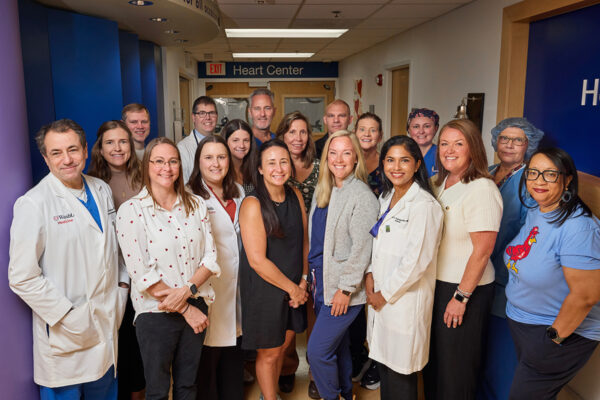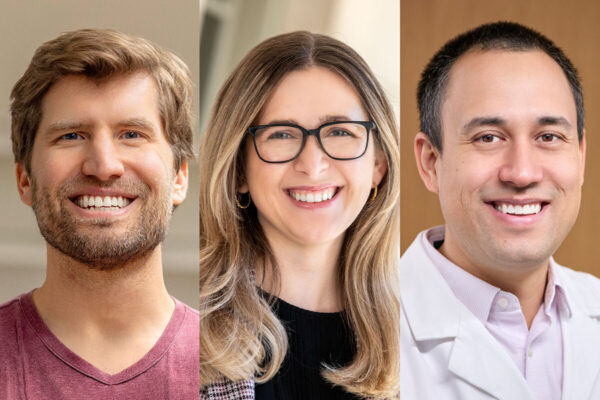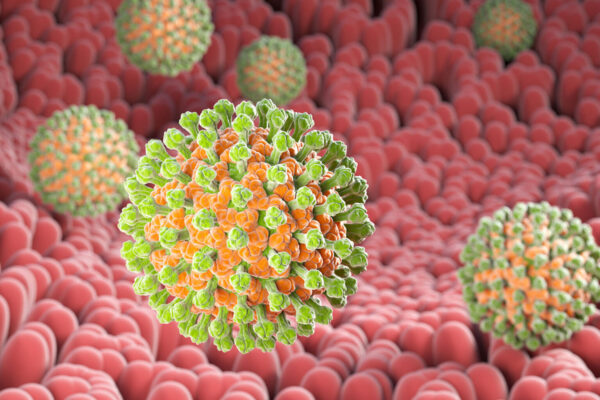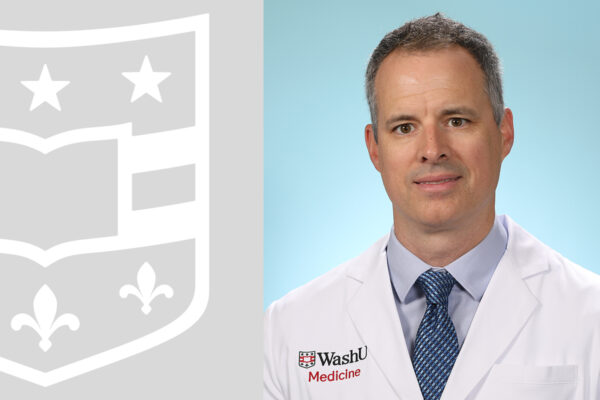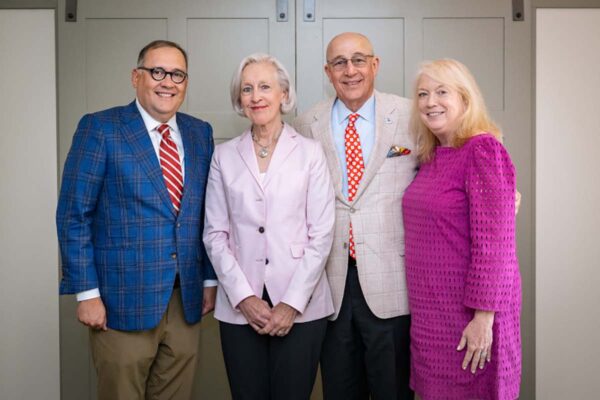Woodard elected to National Academy of Medicine
Pamela K. Woodard, MD, head of the Department of Radiology and director of Mallinckrodt Institute of Radiology at WashU Medicine, is among 100 new members elected this year to the National Academy of Medicine, one of the highest honors in health and medicine.
Eberlein named president-elect of American College of Surgeons
Timothy J. Eberlein, MD, director of Siteman Cancer Center at Barnes-Jewish Hospital and WashU Medicine, has been active within the American College of Surgeons for many years, including serving as chair of the board from 2022-2023.
Puram named head of otolaryngology
Sidharth Puram, MD, PhD, a distinguished physician-scientist specializing in head and neck cancer surgery, has been named the head of the Department of Otolaryngology — Head & Neck Surgery at WashU Medicine.
Team performs first pediatric ‘domino’ partial heart transplant in Midwest
The St. Louis Children’s Hospital and WashU Medicine Heart Center has become one of only eight programs in the nation to perform a rare, lifesaving procedure in which one donor’s organ is transplanted into a patient, who then becomes a donor for another patient.
It’s never too late for those with cancer to quit smoking
Quitting smoking significantly increases survival time in cancer patients, particularly those with advanced-stage cancer, according to a study of an innovative smoking cessation program at WashU Medicine and Siteman Cancer Center.
WashU researchers honored with NIH Director’s Awards
Three WashU investigators have been recognized with prestigious awards through the National Institutes of Health (NIH) Director’s High-Risk, High-Reward Research program, which supports unconventional approaches to major challenges in biomedical and behavioral research.
Researchers find key to stopping deadly infection
New research from WashU Medicine identified a key enzyme that enables rotavirus to infect cells. Disabling this enzyme prevented infection, suggesting new treatments against rotavirus and other pathogens that rely on similar mechanisms.
Applications, nominations sought for Confluence Award
The Confluence Collaborative for Community Engagement at WashU is now accepting nominations and applications for the William H. Danforth St. Louis Confluence Award.
Circadian clock protein linked to brain aging, neurodegenerative disease
WashU Medicine researchers led by Erik Musiek, MD, PhD, discovered in mice that inhibition of a protein that controls the daily cycling of metabolism and inflammation decreases neurodegeneration in Alzheimer’s disease.
Kim and Tim Eberlein receive Harris Award
Kim and Tim Eberlein, MD, were recently honored with the 2025 Jane and Whitney Harris St. Louis Community Service Award. The honor recognizes couples who contribute to the betterment of the greater St. Louis community.
View More Stories



